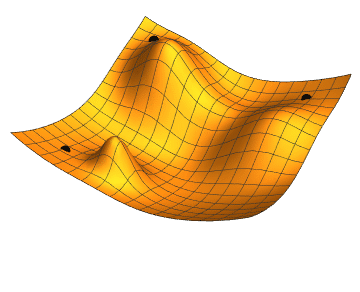We have officially entered the post-truth era.
With the rise of deep-fakes, lying politicians, and Surkovian disinformation campaigns, it’s hard to get a handle on what truth even is.
For a few months I was deep in a skeptical hole where I had truly lost grip on what I considered “real”, and I had to claw my way out by getting real silly and coming up with a formal definition that we might all agree with. Truth, I propose, is given by this expression:

That’s it. That’s truth.
I’ll define terms shortly and it’ll be clear that I’m abstracting away many messy details, but I will try to convince you that this basic structure agrees with many of our informal intuitions and is useful for decision-making — potentially even serving as an objective function for the automated scientists of the near future. Even better: perhaps it can be used as an objective function for search-systems or newsfeeds, only returning the top results as ranked by their truth-value.
If you buy the definition wholesale, I’ll show that it has interesting implications that aren’t immediately obvious. If you don’t buy the definition at all, I invite you to put all critiques, counterexamples, and challenges in the comments so I can update accordingly.
The tau truth-function
The first thing you’ll notice is that truth is a function.

This basic framing already aligns with our intuition in important ways: truth isn’t a value that floats out in the ether all by its lonesome, it’s a property of a statement — which we write here as s. Statements themselves don’t have a truth-value on their own, either: they are always grounded by some set of contexts, D.
Some basic validation by intuition: the statement “the boy runs” doesn’t have any truth-value assigned to it until you give it a context. If the context involves a boy running, then the statement is true. If the context does not include a boy running, then it is false. You need both a statement**s **and a set of contexts **D **to evaluate truth, even if **_D _**means “all possible contexts” (for example, tautologies are true in all contexts!).
It can be argued that we can do away with the notion of contexts if statements were fully qualified (i.e “The boy runs and the time and place is such where there is a boy running”), but since contexts are an easy-to-use shorthand, it’s what we’ll go with.
#science #philosophy #knowledge #data-science
